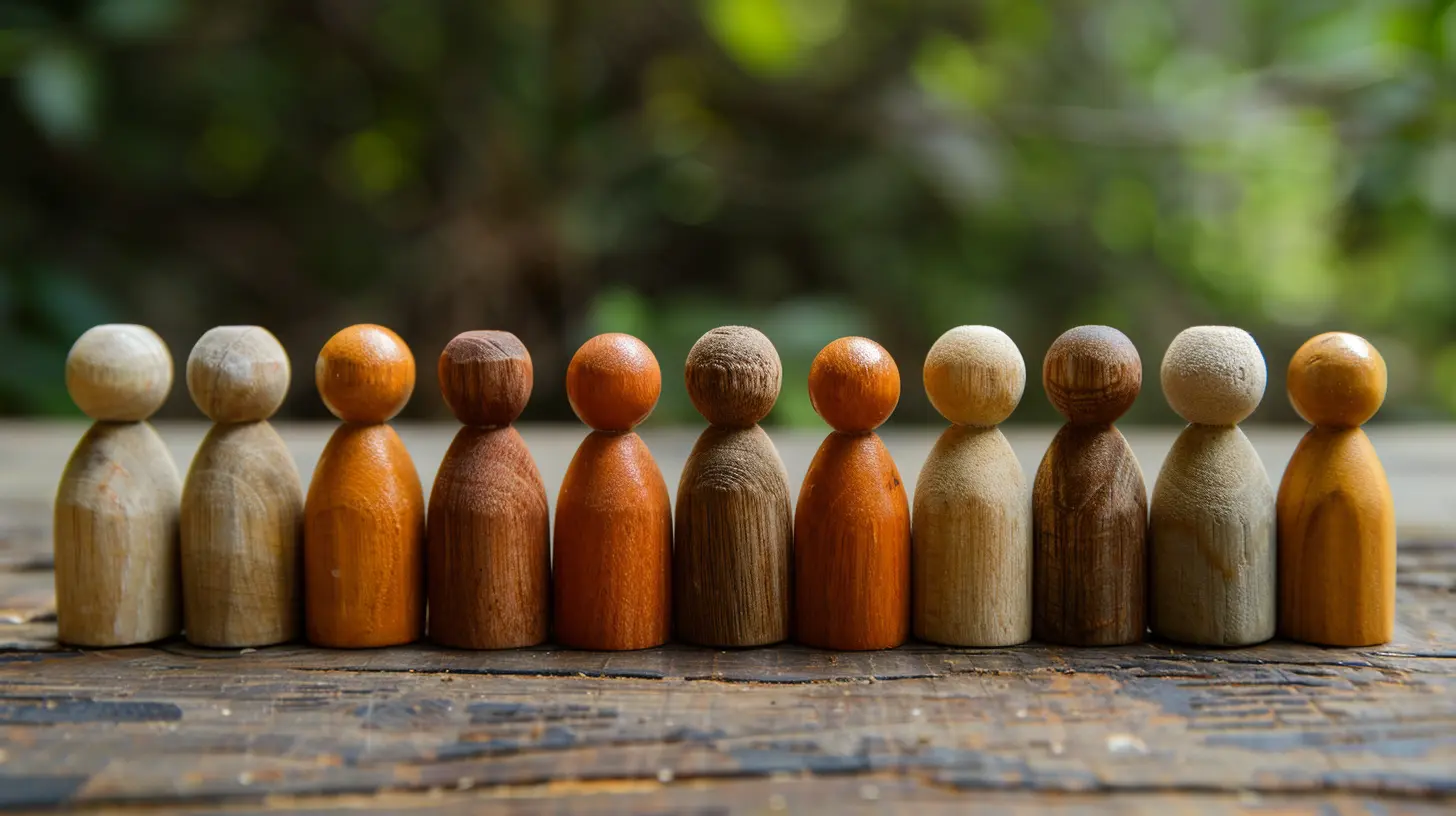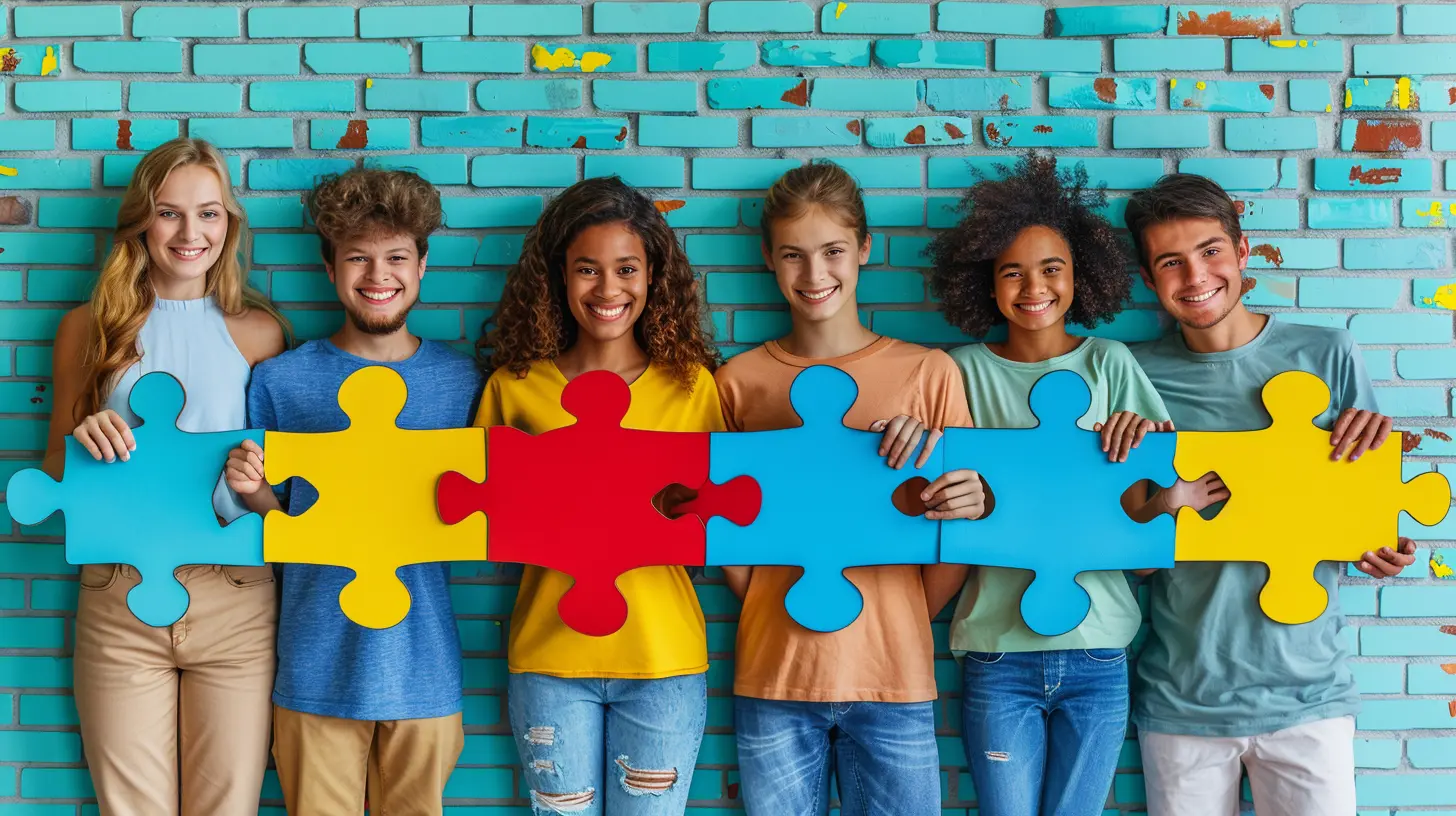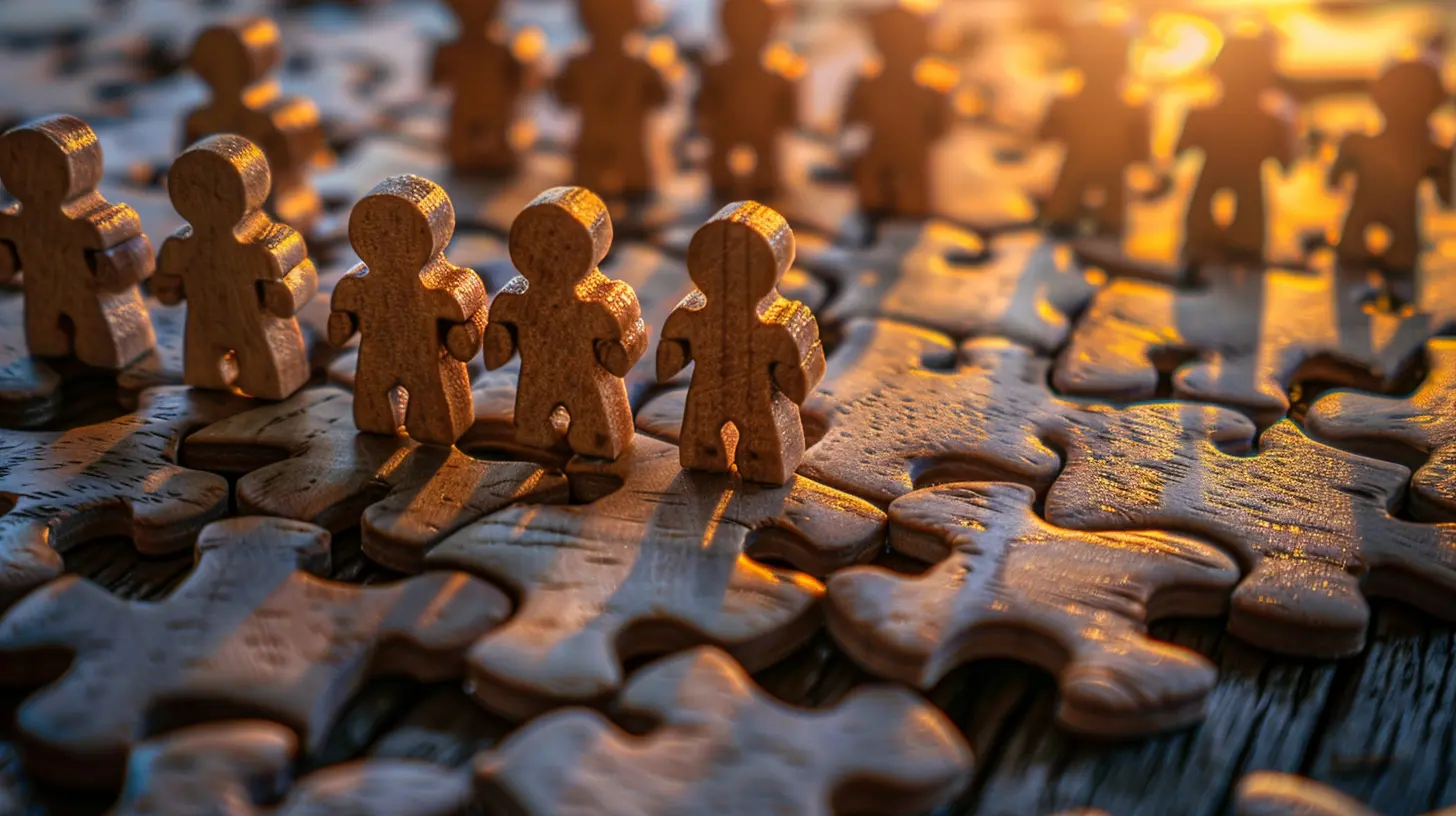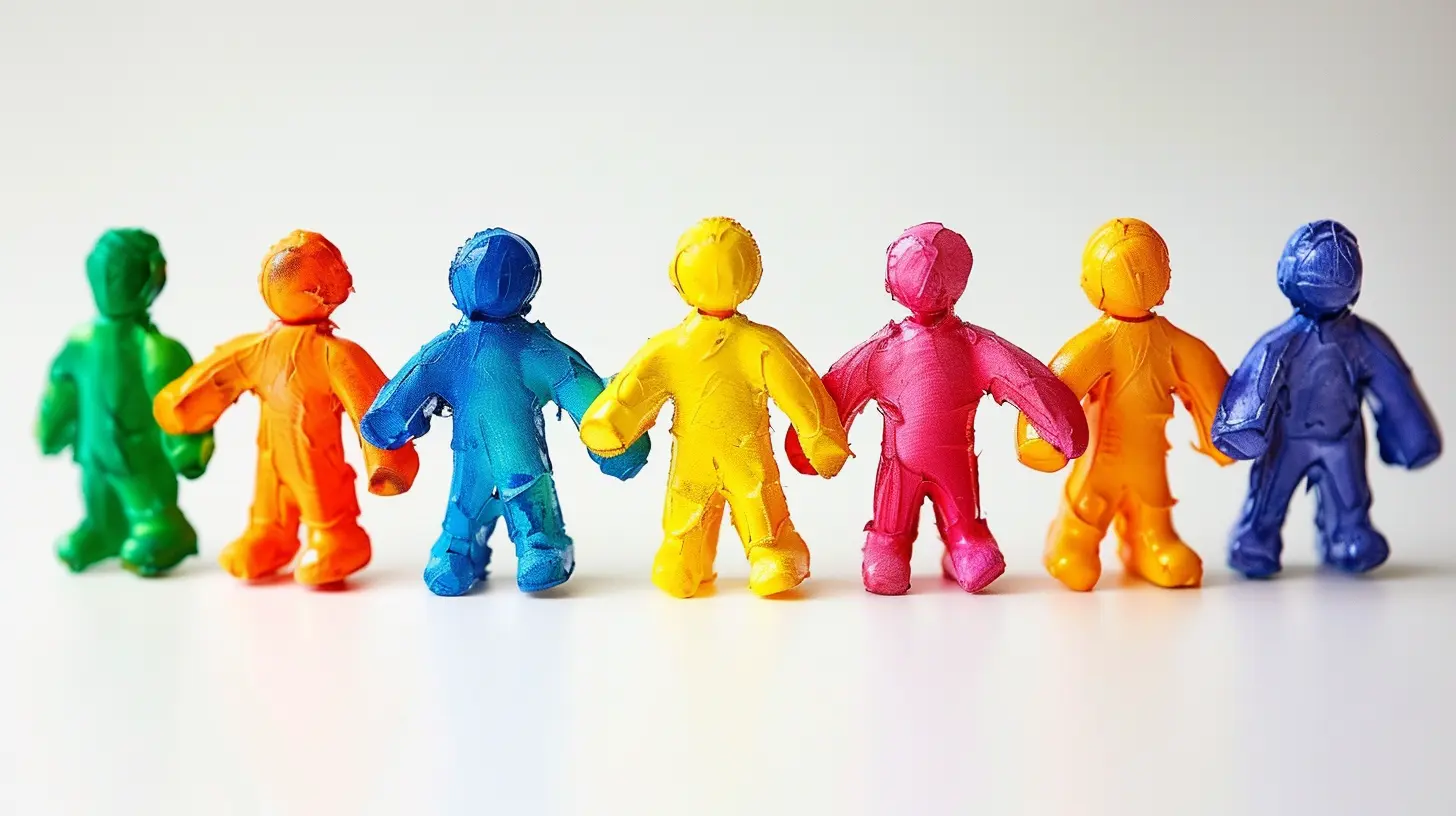Self-Assessment in Group Work: Encouraging Collaboration and Personal Growth
19 December 2024
Group work – it’s either a blessing or a curse, right? Some people thrive working in teams, while others find it a struggle. Regardless of where you stand, one thing’s for sure: collaboration can be a game-changer when done right. But how do you ensure it’s a positive experience for everyone involved? Enter self-assessment.
Self-assessment in group work isn't just about critiquing your efforts; it's about fostering collaboration and personal growth. It helps individuals reflect on their contributions, identify areas for improvement, and work more effectively with others. In this article, we’ll dive deep into how self-assessment can encourage both teamwork and personal development, while also giving you tips to implement it successfully.

Why Self-Assessment Matters in Group Work
Let’s be real: group work can be challenging. Different personalities, varying levels of effort, and sometimes, a lack of accountability can make the process frustrating. How many times have you felt like you're the only one pulling the weight in a group project? Or maybe you're unsure if you’re actually contributing enough?That’s where self-assessment comes into play. It makes us pause, take a step back, and evaluate our own role in the process. It’s like holding up a mirror to our work habits and interpersonal skills. And when done collectively by everyone in the group, it ensures accountability and encourages mutual respect.
Promotes Accountability
When you know you’ll have to assess yourself at the end, you're more likely to take responsibility for your tasks. Imagine if everyone in a group had to give themselves a score based on their effort. Wouldn't that make you think twice before slacking off? Self-assessment encourages individual accountability, making sure no one hides behind the work of others.Fosters Personal Growth
Self-assessment isn’t just about admitting where you went wrong; it’s also about identifying your strengths. Maybe you're great at organizing tasks or communicating ideas, but struggle with time management. Recognizing these areas can help you grow, not just within the group, but in your personal and professional life too.Encourages Better Communication
When everyone in a group is reflecting on their performance, it opens up a space for honest conversations about the process. Self-assessment can act as a springboard for more transparent discussions. It makes it easier to say, “Hey, I think I need to work on this,” or “I noticed we could improve our collaboration in this area.”
How Self-Assessment Supports Collaboration
If done correctly, self-assessment can be a powerful tool for improving collaboration in group work. It’s not just about individual reflection; it’s about understanding how your actions impact the group dynamic.Builds Empathy and Understanding
When you're evaluating your own role, you naturally start to consider how your actions affect others. Did you dominate the conversation? Were you less responsive to feedback? Did you follow through on your commitments? This kind of introspection helps build empathy, making you more aware of how you contribute to group harmony (or disruption).Encourages Equal Participation
In group projects, there's often an imbalance in participation. Some people take charge while others fade into the background. Self-assessment helps level the playing field. When everyone is asked to evaluate their contributions, it can highlight who might need to step up or who could take a step back, fostering a more equitable group environment.Reduces Conflict
Let’s face it, conflict is inevitable in group work. But when everyone is engaged in self-assessment, it can reduce misunderstandings and disagreements. Why? Because it encourages open dialogue and self-awareness. Instead of blaming others, you’re more likely to focus on your own role and how it can be improved.
The Role of Self-Reflection in Personal Growth
Personal growth is one of those buzzwords that we hear all the time, but what does it actually mean in the context of group work? Simply put, self-reflection allows you to grow by learning from your experiences. And in group work, these experiences are rich with opportunities to develop both hard and soft skills.Developing Soft Skills
Soft skills like communication, teamwork, and problem-solving are crucial in any collaborative setting. Through self-assessment, you can identify which of these skills you’re excelling at and which ones need work. For instance, maybe you discovered that you're a great listener but struggle with delegating tasks. Recognizing this can help you improve in future group settings.Enhancing Critical Thinking
Self-assessment forces you to think critically about your performance. It’s not just about saying, “I did well” or “I didn’t do well.” It's about understanding why you performed the way you did and how you can improve. This critical thinking process is essential for personal growth because it helps you develop a mindset of continuous improvement.Building Confidence
When you reflect on your contributions and acknowledge your successes, it builds confidence. Self-assessment helps you see where you’re making a difference, which can boost your morale and motivation in future projects. Plus, knowing your strengths gives you the confidence to take on more challenging roles in group work.
Best Practices for Implementing Self-Assessment in Group Work
Okay, so we’ve established that self-assessment is pretty awesome. But how do you implement it effectively in a group setting? Here are some best practices to keep in mind:1. Set Clear Criteria
Before diving into a project, set clear expectations for the group. What are the goals? What are the individual roles? Having a defined framework makes it easier for each member to evaluate themselves later on. Without clear criteria, it’s like trying to navigate without a map – you won’t know where you're headed.2. Use Structured Self-Assessment Tools
One way to make self-assessment more effective is by using structured tools like rubrics or questionnaires. These tools can provide specific questions or metrics to guide individuals in their reflection. For example, a rubric might ask you to rate your communication skills, time management, and contribution to group discussions.3. Encourage Honest Feedback
Self-assessment only works if people are honest with themselves. Encourage group members to be as objective as possible in their evaluations. Remind them that the point isn’t to criticize or inflate their performance, but to gain insights for improvement.4. Pair Self-Assessment with Peer Assessment
While self-assessment is crucial, combining it with peer assessment can provide a more well-rounded view of each group member’s performance. Sometimes, others notice things about our behavior that we miss. Peer feedback can complement self-assessment by highlighting blind spots.5. Reflect Regularly
Self-assessment shouldn’t just happen at the end of a project. Make it a regular part of the group process. For instance, after each major task or milestone, take a few minutes to reflect on your contributions. This ongoing reflection helps you make adjustments along the way, rather than waiting until the last minute.Potential Challenges and How to Overcome Them
Of course, no system is perfect. Self-assessment in group work comes with its own set of challenges. But don’t worry – with a little foresight, you can overcome them.Challenge 1: Lack of Honesty
Some people may be overly critical of themselves, while others might overestimate their contributions. This can skew the results of self-assessment and lead to frustration within the group.Solution: Encourage a culture of honesty and openness. Make it clear that self-assessment is a tool for growth, not judgment. You can also use peer feedback as a way to balance self-assessments.
Challenge 2: Group Imbalances
Sometimes, despite self-assessment, certain group members may still dominate the project while others take a back seat.Solution: Establish a group agreement at the beginning of the project that outlines each person’s responsibilities. This way, everyone knows what’s expected of them, making it harder for anyone to slack off or take over.
Challenge 3: Time Constraints
Let’s be real – group projects are often rushed, and adding self-assessment might feel like an extra burden.Solution: Incorporate self-assessment into the project timeline. Instead of seeing it as an "extra," make it a natural part of the process. For example, set aside specific times for reflection after key milestones.
Final Thoughts
Self-assessment in group work is like the secret sauce that holds everything together. It encourages personal accountability, fosters collaboration, and promotes personal growth. By regularly reflecting on your own contributions, you not only improve your own skills but also contribute to the success of the entire group.So the next time you find yourself in a group project, don’t wait until the last minute to think about your performance. Start reflecting early, communicate openly, and watch as your team becomes more cohesive and productive. After all, teamwork makes the dream work – but a little self-assessment can make it even better.
all images in this post were generated using AI tools
Category:
Self AssessmentAuthor:

Anita Harmon
Discussion
rate this article
18 comments
Zander White
This article effectively highlights the importance of self-assessment in group projects. By fostering collaboration and encouraging personal growth, it empowers students to reflect on their contributions and develop essential skills. Implementing these practices can lead to more productive teamwork and enhanced learning experiences. Great insights!
February 13, 2025 at 11:18 AM

Anita Harmon
Thank you for your thoughtful feedback! I'm glad you found the insights on self-assessment and collaboration valuable for enhancing teamwork and personal growth.
Edith Lambert
This article effectively highlights the importance of self-assessment in group work. It fosters collaboration and encourages personal growth, making it a valuable tool for both educators and students. Great insights!
February 2, 2025 at 3:43 AM

Anita Harmon
Thank you for your thoughtful feedback! I'm glad you found the article valuable in highlighting the role of self-assessment in fostering collaboration and personal growth.
Ardent McGrady
Empower yourself through self-assessment; it fuels collaboration and ignites personal growth in group dynamics!
January 30, 2025 at 1:32 PM

Anita Harmon
Thank you for your insightful comment! I completely agree—self-assessment not only enhances individual growth but also strengthens teamwork and collaboration.
Fiona McDonough
This article beautifully highlights the importance of self-assessment in group work. It’s essential for fostering collaboration and personal growth. By encouraging individuals to reflect on their contributions, we not only enhance teamwork but also cultivate a deeper understanding of ourselves. Thank you for sharing these valuable insights!
January 25, 2025 at 2:00 PM

Anita Harmon
Thank you for your thoughtful comment! I'm glad you found the insights on self-assessment valuable for enhancing collaboration and personal growth in group work.
Lacey McMillan
In the dance of collaboration, self-assessment shines, Illuminating paths where growth entwines. Together we rise, reflecting and sharing, In unity's embrace, our strengths declaring, A symphony of minds, forever daring.
January 23, 2025 at 5:06 AM

Anita Harmon
Thank you for beautifully capturing the essence of collaboration and self-assessment! Your poetic insight perfectly highlights their role in fostering growth and unity in group work.
Talis Coffey
This article effectively highlights the importance of self-assessment in group work. By fostering collaboration and encouraging personal reflection, students can enhance their learning experiences. Empowering individuals to evaluate their contributions not only promotes accountability but also nurtures essential skills for future teamwork and personal development.
January 19, 2025 at 9:02 PM

Anita Harmon
Thank you for your insightful comment! I’m glad you found the article highlights on self-assessment in group work valuable for fostering collaboration and personal growth.
Corinne McIlroy
This article beautifully highlights the significance of self-assessment in group work. By fostering collaboration and encouraging personal growth, it empowers individuals to reflect on their contributions and improve interpersonal skills. A valuable read for anyone engaged in teamwork!
January 17, 2025 at 9:45 PM

Anita Harmon
Thank you for your thoughtful feedback! I'm glad you found the article valuable in highlighting the importance of self-assessment for collaboration and personal growth in group work.
Sonya McTigue
Self-assessment fosters accountability and deeper connections, enhancing both collaboration and personal development.
January 15, 2025 at 9:40 PM

Anita Harmon
Thank you for your insightful comment! I completely agree—self-assessment not only promotes accountability but also strengthens relationships, leading to more effective collaboration and personal growth within groups.
Kassidy Powell
This article wonderfully highlights the importance of self-assessment in group work. It encourages not just collaboration, but also personal growth, allowing individuals to reflect on their contributions. By fostering accountability and open communication, we can enhance the group dynamic and create a more enriching learning experience for everyone involved.
January 13, 2025 at 5:19 AM

Anita Harmon
Thank you for your thoughtful comment! I'm glad you found the article highlights valuable for enhancing both collaboration and personal growth in group work.
Kairo Cook
Great insights! Self-assessment really fosters teamwork and personal growth—it's all about learning from each other!
January 8, 2025 at 4:42 AM

Anita Harmon
Thank you! I'm glad you found the insights valuable. Self-assessment truly is key to enhancing collaboration and personal development in teams.
Aria Luna
Could self-assessment be the secret key to unlocking hidden potential in group dynamics? Discover the transformative power of reflection and collaboration.
January 4, 2025 at 4:24 AM

Anita Harmon
Absolutely! Self-assessment promotes awareness, encourages open communication, and fosters a culture of collaboration, all of which can significantly enhance group dynamics and personal growth.
Phaedra Hernandez
Self-assessment fosters accountability and enhances team collaboration effectively.
December 31, 2024 at 9:03 PM

Anita Harmon
Thank you for your insight! I completely agree—self-assessment not only promotes accountability but also strengthens team dynamics and personal development.
Brigitte Harmon
This article highlights the importance of self-assessment in group work, fostering both collaboration and personal growth. It encourages reflection, accountability, and a deeper understanding of teamwork dynamics.
December 27, 2024 at 1:12 PM

Anita Harmon
Thank you for your insightful comment! I'm glad you found the article's emphasis on self-assessment and its role in fostering collaboration and personal growth meaningful.
Max Collins
Self-assessment transforms group work into a journey of shared growth!
December 22, 2024 at 9:18 PM

Anita Harmon
Thank you! I completely agree—self-assessment fosters collaboration and enhances personal development within group dynamics.
Dixie McGhee
Self-assessment: because teamwork doesn’t mean dodging personal responsibility, darling!
December 21, 2024 at 12:26 PM

Anita Harmon
Absolutely! Self-assessment fosters accountability and ensures that everyone contributes meaningfully to the team's success.
Dakota Love
Embrace self-assessment as a fun tool for growth! It’s a chance to celebrate teamwork, learn from each other, and shine individually. Let’s thrive together!
December 20, 2024 at 5:07 AM

Anita Harmon
Thank you for your insight! Embracing self-assessment truly enhances collaboration and fosters personal growth within teams. Let’s keep thriving together!
Thaddeus Wilkins
This article beautifully highlights the importance of self-assessment in collaborative settings. By fostering both personal growth and teamwork, we empower individuals to reflect, learn, and thrive together. A valuable read!
December 19, 2024 at 9:09 PM

Anita Harmon
Thank you for your kind words! I'm glad the article resonated with you and emphasized the value of self-assessment in collaboration.
Jamie Kirkland
Within the tapestry of group work lies an unseen thread: self-assessment. As individuals reflect, they unlock hidden potentials and foster deeper connections. What secrets might emerge when we confront our own contributions? Dive into the enigmatic dance of collaboration and discover how self-awareness can transform the collective experience.
December 19, 2024 at 5:54 AM

Anita Harmon
Thank you for your insightful comment! Self-assessment indeed reveals valuable insights and enhances both personal growth and group dynamics. Embracing this practice can lead to transformative collaboration.
MORE POSTS

Financial Literacy for Teens: A Parent’s Guide

Digital Tools for Personalized Learning: Tailoring Education to Every Student

Incorporating Social Learning into Your E-Learning Strategy

The Role of Leadership in Fostering a Growth Mindset Culture

The Role of EdTech in Special Education: Tools for Accessibility

Immersive Learning: The Power of Context in Acquiring a Second Language

The Role of Tone in Effective Writing

Teaching Students to Recognize Text Structures for Better Comprehension

How to Use Self-Assessment to Gauge Your Progress in Any Subject

How to Use Self-Assessment to Create a Personalized Study Plan

How to Use Technology to Create Collaborative Global Classrooms